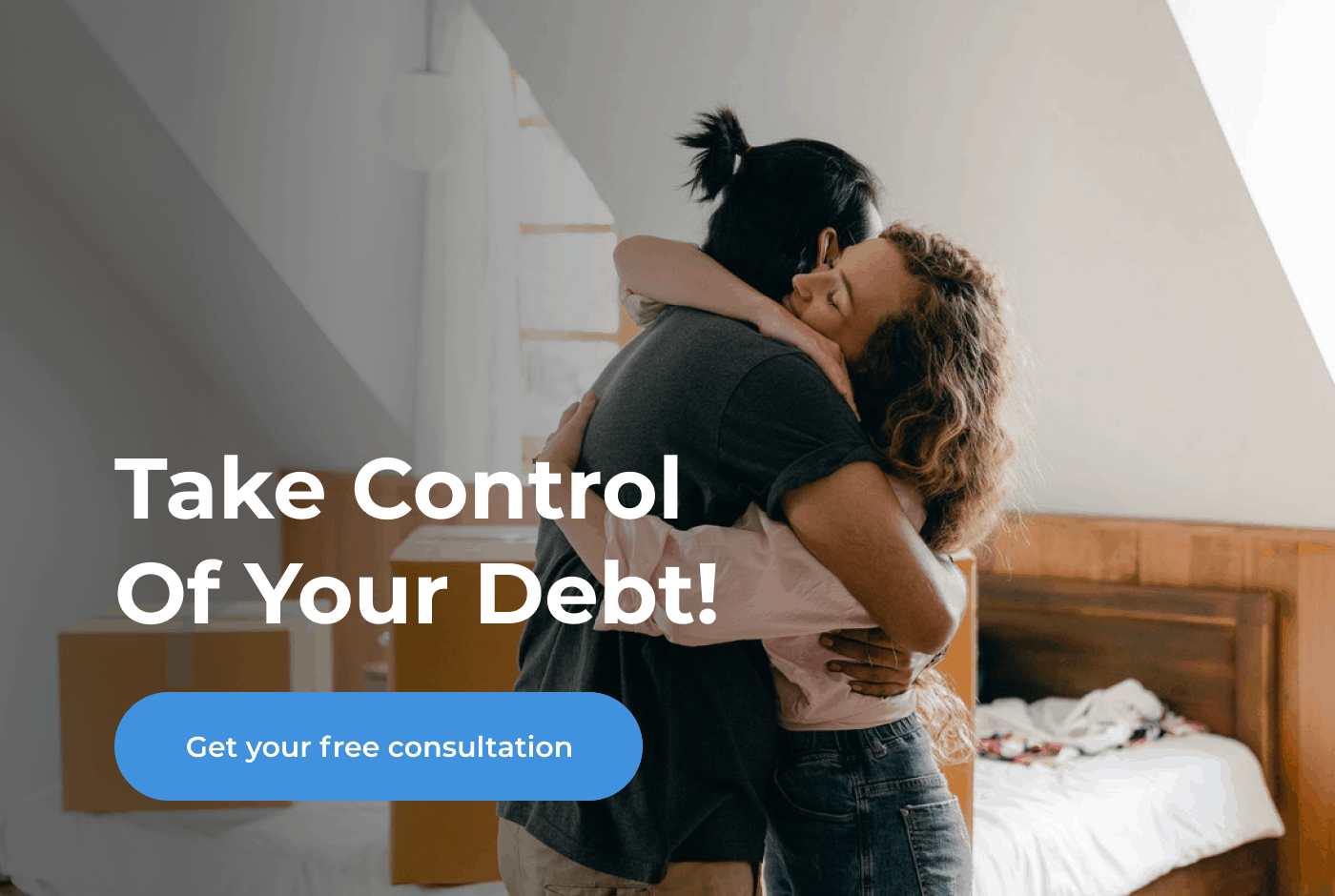Is Credit Card Refinancing An Option?
Posted on December 9, 2020 in Credit Cards
It’s a story we’ve all been a part of: we are warned about the effects and risks associated with debt, loans, and credit card debt. At some point in our lives, someone said “if you just sign on the lines, you can make payments and get this item that’s otherwise outside of your budget” and we had decided the payments were worth it.
After all, how bad can just one credit card be?
Credit Card Refinancing
It’s important to understand exactly what refinancing is, what it could be, and what it isn’t.
Refinancing refers to taking a pre-existing debt, and re-visiting the debt agreement with new terms, such as a better interest rate or lower payments.
Refinancing can also refer to utilizing another outside source of debt, which is used to pay off the credit card, ultimately consolidating the debts.
Potential Options
While there are many potential refinancing options, it’s important to understand that every option may not fit every person’s situation. It’s important to take the time to see what options apply to you, and how much you would pay in added interest if your credit card debt was added.
Personal Loans
Personal loans are loans signed from your bank or lending institute without a specific spending purpose required. While auto loans must be used for a car, and home loans must be used for a home, personal loans can be used openly.
If taking out a new personal loan to consolidate your debts, be sure to focus on your potential new interest rate. Once you have an idea of the max loan amount, add up how much credit you would be adding, and how much the interest payment would be, compared to your current credit cards.
Equity Loans
When taking debt against your possessions, it’s known as an equity loan. A home equity loan refers to taking out a loan against your house, or adding to your current mortgage. The same can be said with your vehicle utilizing an auto equity loan.
Other forms of equity loans can be found when dealing with items of relatively high value. It’s important to remember the risks associated with equity loans. If you were to become unable to pay your loan, the bank would then own whichever items you put up for the loan.
Balance Transfers
A popular option for refinancing is credit card consolidations, or the idea of paying off credit cards with other forms of credit.
Larger private credit cards can be used for balance transfers to eliminate smaller credit cards. Be sure to check your interest rates and new monthly payment to figure out if it’s worth it.
Balance transfer credit cards are credit cards focused on absorbing smaller credit cards to reduce interest costs. Most often, you will find 12-24 months of 0% interest in an attempt of allowing you to pay off your debt.
401K
Your 401K or other forms of retirement may be used to pay off credit card debt, with the idea of paying your debt off now, to avoid recurring payments. Keep in mind that pulling from your 401k could affect your retirement and should be done with caution.
Why Credit Cards Are So Appealing
Even knowing the risks, credit cards seem to find their way into our lives. The reasoning is simple — when you decide to make a large purchase, paying with cash will limit how much you have on hand and place you in a tough situation. Paying with credit on the other hand allows you to spend more than what you have, and make small payments, leaving more in your pocket every paycheck.
Adults on average have four credit cards at any given time, showing that people are no longer having a credit card as a singular backup fund.
You may find yourself encouraged to get a credit card as a great way to borrow and pay a revolving debt in order to raise your credit score. Maintaining a credit utilization of less than 30% and paying your bill on time can have a growing impact on your credit, but are people using their credit cards correctly?
Holding a credit card gives you access to cash that would otherwise not become available. In many cases, this gives the cardholder a false sense of available cash, and can lead to overuse, or spending more than their income. This becomes an issue over time as debt increases and no longer becomes available. This paired with people’s impulse action and issues with delayed gratification cause many people to say “I’ll just buy it now and pay it over time,” racking up their debt instead of saying “I’ll save money now so I can buy this later.”
This is why banks place limitations on credit cards, to keep users from continuously racking up debt, but for many cardholders, the answer was to apply for another card.
The Problem With Multiple Cards
Holding and utilizing multiple credit cards at first, appears to be no issue. Many credit companies offer promotions such as “no interest for 12 months” as well as options for cash advances and other forms of promotions or rewards encouraging you to spend.
This creates a “why not, it’s the same as paying cash” feeling that quickly comes to an end at the end of the promotion’s time. Your idea of paying the minimum over time quickly becomes an issue as interest is added.
With 70% of people stating if they were to fail to receive even one paycheck, bills would begin piling up, you can imagine that a majority of people are living on the edge of their income. For many people, this includes paying just the minimum on their credit card payment.
The minimum credit card payment often covers the monthly interest, and maybe a little more. This means paying the monthly minimum will almost never lower your overall debt. It’s hard to work your way toward becoming debt free when you’re not actually paying towards your principal.
The real issue revolves around having multiple credit card payments, falling into the loop of paying minimums on all of your cards and virtually paying nothing down. You simply pay your monthly interest rates and continue with just as much debt, and possibly hundreds of dollars out of pocket every month depending on how many cards you have.
Adding Up Interest
To better understand if a credit card refinancing is the correct option for you, it’s important to understand your personal debt, and compare it to refinancing options.
First, it’s important to understand how much interest you are paying on each account. If your payment to interest alone is shown, take note of this. If it isn’t, take your total payment and subtract the principal payment. Principal is the original borrowed amount you are attempting to pay back, with principal payments being the amount paid toward lowering the original debt.
Be sure to write down your interest percentage and your debt amount, as it will show the importance of each debt to be refinanced.
Once you have added your various credit card interests, you can see how much money is spent each month just to have your debt. This is how much you pay, without making an impact on your credit.
Now that you understand your interest payments, you can weigh the pros and cons of each potential refinancing option.
Other Options
Attempting to get out of credit card debt is often about more than refinancing or moving the debt around. At the end of the day, you are still responsible for paying the debt back.
When looking at credit card debt, it’s important to attack it with more than the bare minimum. Paying a little more on all accounts will leave you paying less in the long haul.
Look at your list of accounts, interest rates, and interest payments, evaluate which account can be paid off in reasonable time, and has a higher interest rate. Begin making extra payments towards this account until it is paid off. Once this account is paid off, take your normal payment that originally went to this card and begin attacking the next card. This is also known as the debt avalanche strategy, which you can learn more about here.
The Takeaway: Credit card refinancing is a viable option if your account has high interest that makes it hard to pay down the actual debt.
Credit card debt can feel like an uphill battle, as interest payments cause higher than normal payments with minimal impact on the overall debt. To better understand your financial options, and take control of your debt, trust the experts at Turbo Finance.
Sources
https://www.verywellmind.com/delayed-gratification-why-wait-for-what-you-want-2795429
Related blog posts
Need expert financial advice?
Let TurboFinance connect you with the best consulting services and resources to help you take control of your finances and find a path to build wealth.
Get A Free Consultation Today!

